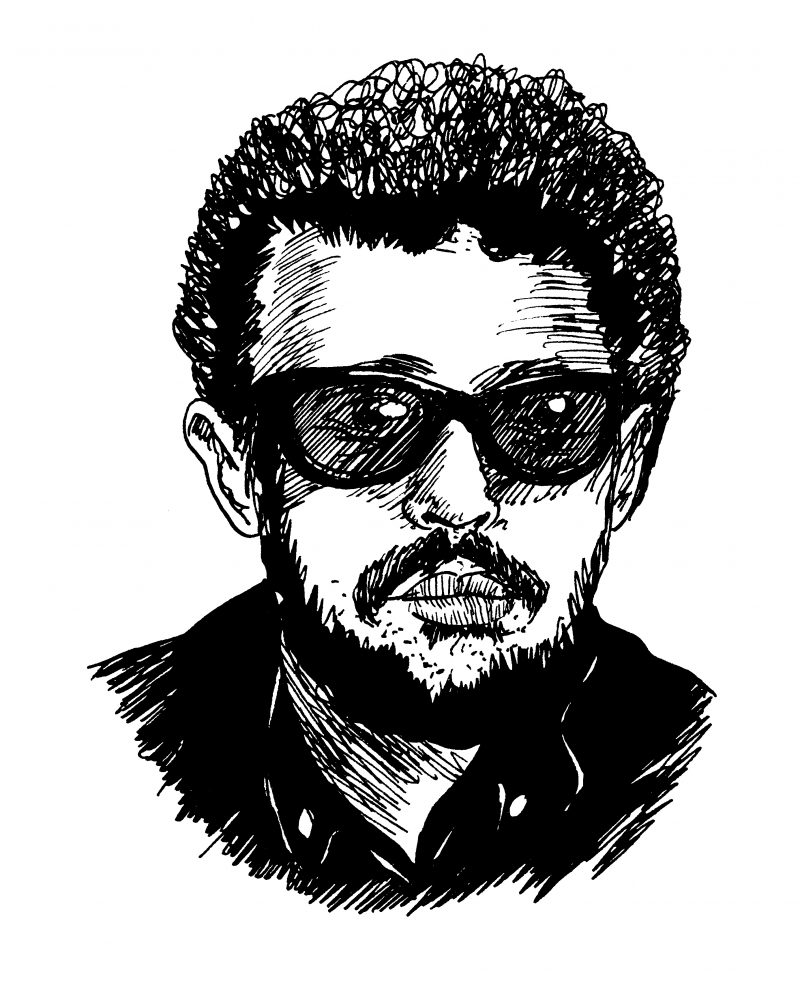As we sit down for coffee on the Upper West Side of Manhattan, Neil LaBute immediately begins to talk shop. We discuss actors, turning in scripts to studios, his latest stint directing episodes of AMC’s Hell on Wheels. Ten minutes pass before I realize I haven’t started recording.
We all know that an artist is distinct from his or her work—that a person could, for example, write a string of dark and twisted plays populated by morose sociopaths and remain a charming, personable guy—but that doesn’t end one’s suspicion that Neil LaBute must be dark and twisted himself. Instead, he’s a gracious workaholic, someone who revels in rewriting, riffs on imaginary sequels to some of his most famous work, and admits to liking productions of his plays that are unrecognizable to him. There is nothing finished or sacred in his career; there’s simply more to be explored.
Since the early ’90s, Neil LaBute has invited controversy with plays and films that revolve around things like infanticide (Bash), infidelity (Your Friends & Neighbors), male cruelty (In the Company of Men), female cruelty (The Shape of Things), the embarrassment of dating someone who is overweight (Fat Pig), the potential for personal gain from 9/11 (The Mercy Seat), and everything else icky and hard to watch, including incest, rape, office shootings, and racism. He’s maintained a hit-or-miss career directing films: he has garnered praise and a Sundance Filmmakers Trophy, but also directed an unnoticed thriller (Lakeview Terrace) and a universally panned horror remake (The Wicker Man). Meanwhile, he has established himself as one of the most produced and popular playwrights alive.
Liking LaBute’s work is often contingent on what Joseph Conrad called the “fascination of the abomination”—the impulse to simultaneously gawk and avert your gaze. There have also been sweet and strange moments (Nurse Betty), happy endings (Reasons to Be Pretty), and singular performances from his actors, who include Aaron Eckhart, Renée Zellweger, and Stanley Tucci.
In person, his manner doesn’t match his provocateur reputation. His excitement is most piqued when we discuss actual production—such as the on-set dynamics of his latest film, Some Velvet Morning—and wanes when the subject veers to cultural or critical evaluations of his projects. He is, above all, a man concerned with story more than meaning, with concrete events, with characters in tough positions. While we were talking, I got the sense that his material treads into grim territory because that’s simply where the more propulsive story lives.
—Rider Strong
I. CONTEXT BORDER
THE BELIEVER: I read your first play, Filthy Talk for Troubled Times, and watched Some Velvet Morning...
You have reached your article limit
Sign up for a digital subscription and continue reading all new issues, plus our entire archives, for just $1.50/month.
Already a subscriber? Sign in





